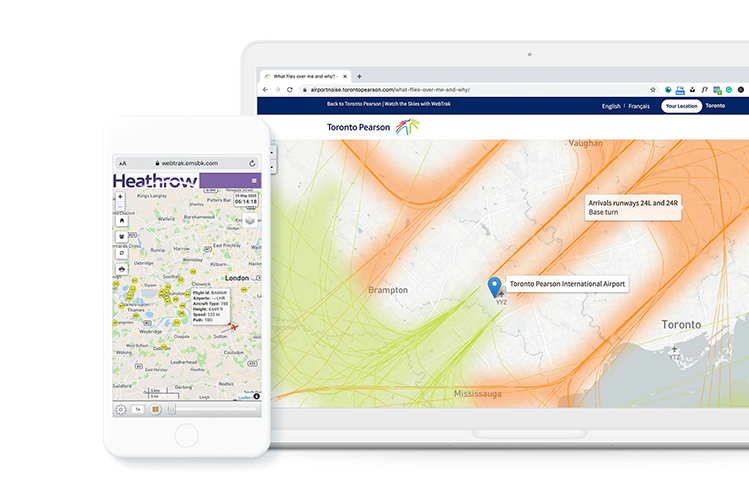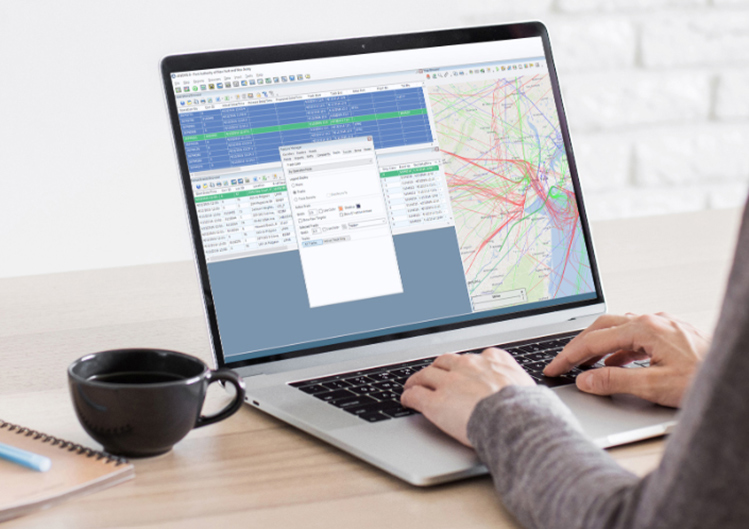By Matt Mills-Brookes, Senior Airport Specialist, Envirosuite, and Peter Rafano, Airport Business Development, Envirosuite.
In this newsletter series, Envirosuite is exploring the aviation industry’s challenges as it returns to ‘normal’ operations. Might you have any question, please get in contact with us.
As the pandemic developed, airports focused on streamlining their operating model, which in many cases resulted in the loss of environmental staff or the re-focusing of their roles to manage business critical issues. The challenge facing us is keeping environmental programmes running, whilst also being cognisant of the future challenges. These programmes are often Government or legislatively backed.
Our community’s relationship with aviation has changed, the prolonged period of reduced overflight has produced a new normal and when the industry recovers, we will see several decades of traffic return (hopefully) within two to four years. That could easily be seen as a new impact.
Whilst the pandemic presents unique challenges, as an industry we have a remarkable track record of solving this kind of issue. Especially in environmental management where we have continuously re-invented our approach to do more with less. Continuing to manage growing community concern through increasingly complex projects focusing on broad industry stakeholder engagement.
For the last three decades Envirosuite, through its strong lineage as Lochard and EMS Brüel & Kjær, have been working with airports to do just this. Continuously improving products, processes, and toolsets to deliver effective and efficient environmental management. The latest evolution of our NoiseDesk and ANOMS platforms are able to provide Environmental Intelligence. A step-change in management in a post-pandemic world and one provided by leveraging technology-driven processes to harness the power of big data, machine learning and analytical tools to produce real-time visualisations, predictive modelling, digital simulations, and actionable insights.
Environmental Intelligence has enabled airports through their existing platforms, to quickly access the insights in their datasets, transitioning environmental teams away from data analysis, investigation and reporting, and moving to high-value and rewarding tasks such as process review, continuous improvement and industry and community engagement.
This step change delivers real and beneficial outcomes for both the airport and the local community, for
example one of our clients leveraged Environmental Intelligence to release 1.5 full time equivalents from
labour intensive tasks to focus on high value tasks. One key benefit was the use of Envirosuite’s Airline Compliance module which automated the sharing of interactive data with their airline partners, saving time and effort whilst promoting leadership and collaboration in the management of environmental programmes.
This is just one of the great examples of our airport clients leveraging the Envirosuite toolset to deliver real-world efficiencies that are critical in a pandemic and post-pandemic world, thereby ensuring we as an industry, can re-start and build back better. Want to know more? Then get in contact.
Author: Matt Mills-Brookes
Author bio: Matt is an aviation specialist dedicated to solving the strategic problems facing Envirosuite clients. Prior to joining Envirosuite Matt was an air traffic management consultant and Airspace Lead at Gatwick Airport where he led a team which is responsible for the management of the airspace surrounding the world’s busiest single runway airport.
Author: Peter Rafano
Author bio: Pete is an airport specialist with a passion for helping Envirosuite’s clients manage their environmental programmes. Pete spent 17 years managing Heathrow Airport’s existing operational noise programme and actively engaging with internal and stakeholders, the regulator, Government, airlines, NATS, EUROCONTROL and others.











